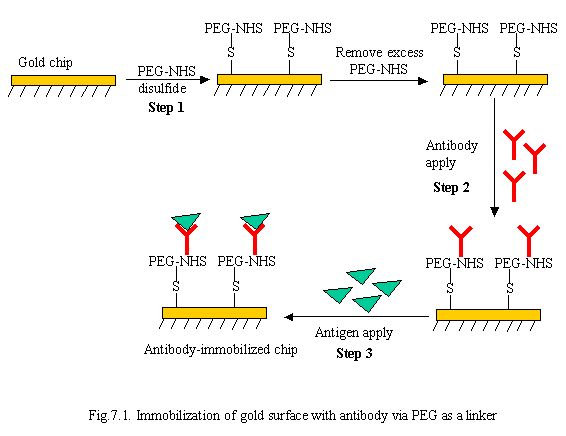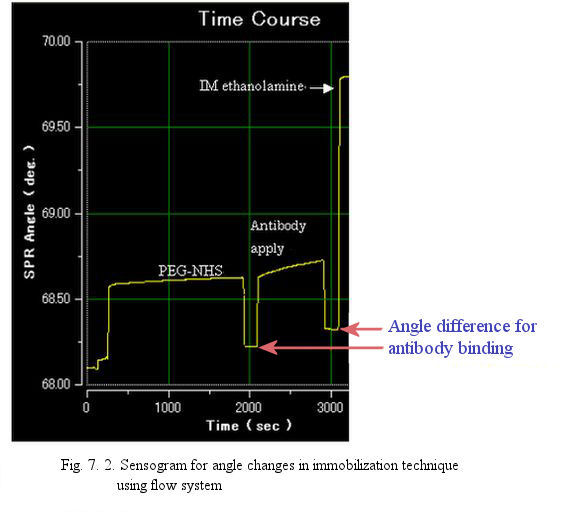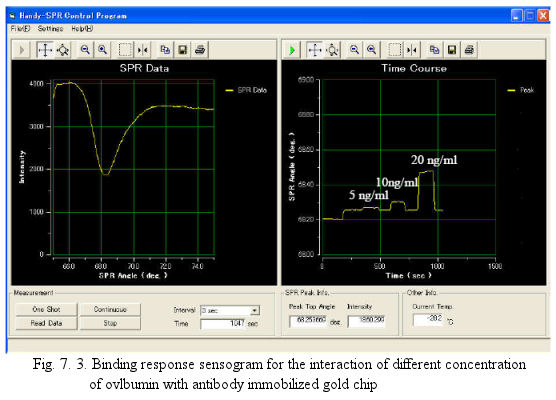7.Immobilization procedure using polyethylene glycol (PEG) as a linker
At first, a sensor chip is equilibrated in water and perfused with buffer reagent to stabilize the system. Then, PEG-NHS disulfide is used as a linker reagent, which is coated on Au via thiol coupling. Again 1 mg/ml of PEG-NHS disulfide solution is passed through flow cell at 5 µl/min for 30 min. A detectable angle change indicates a complete coupling of PEG-NHS disulfide with gold chip surface. To remove excess PEG-NHS solution, the gold surface washes with running buffer through flow system. The schematic representation of antibody immobalization is shown in Fig. 7.1.
Immobilization of Gold surface with Antibody via PEG as a linker:
 |
The schematic representation of antibody immobilization onto gold surface using PEG-NHS disulfide as a coupling reagent.
Step -1: A hydrophilic polymer, PEG-NHS thiol, is first immobilized onto gold surface which serves as a background of array.
Step -2: Introduction of antibody with PEG-NHS coated surface.
Step -3: Application antigen to see antigen-antibody interaction.
A 200 µg/ml of antibody solution is applied on PEG-NHS-coated gold surface at 5 µl/min for 30 minutes. The antibody is bound with PEG-NHS-coated gold chip surface by amide bond formation. The excess antibody solution is removed from the gold surface by washing with buffer. To complete the immobilization of the antibody onto the gold surface, two additional steps are performed. At first, apply 1 M ethanolamine, pH 8.5, for few minutes through flow channel, to cap residual NHS ester. Secondly, in order to reduce non-specific responses, pass 0.5% alpha-casein solution through flow cell for 30 minutes.
At the final stage, apply antigen to see the antigen-antibody interaction using Handy SPR instruments.
 |
Detection of antigen-antibody interaction:-
To evaluate the interaction of ovalbumin protein with anti-ovalbumin antibody, 5, 10 and 20 ng/ml of ovalbumin solution are applied through flow cell. After that, binding responses have been observed by increasing the angles due to antigen-antibody interaction.
 |
| Catalog No. | Description |
| 012072 | Handy SPR PS-0109 |
| Components | |
| Transmission cable | |
| Power cable | |
| Software | |
| 011870 | Matching oil |
| 011869 | Gold chip |
| 011871 | PDMS flow cell |
![]()

